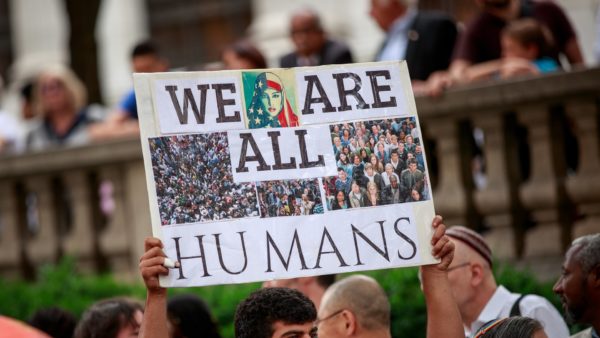Via the Harvard Immigration and Refugee Clinical Program

By: Cindy Zapata
There are some memories that remain so vivid in my mind. Some of them are obvious ones, like the day I got married and the day my son was born. Others are not so obvious, like the time my mother made me pay for a 5 dollar chicken shawarma in dimes and nickels. She laughed hysterically from afar as I ashamedly walked over and paid the man in countless coins. She insisted that it was a life lesson on the value of money – money is money, whether it comes in the form of a bill or a coin.
Often these memories evoke the emotion I felt in that very moment – joy, happiness, embarrassment – but there are some memories that not only evoke the emotion, but, in a way, transport me to the very moment of the experience. An example? Volunteering at the Karnes Family Detention Center.
During the four day stretch we were there, we met with countless fathers and sons. We helped represent some for their credible fear interviews or drafted affidavits. For others, we represented them for their reasonable fear redetermination appeal before an immigration judge. In three days, we had more than ten hearings.
Each had a very unique story, but they all shared a similar sentiment: they were scared of returning to their home country. Each had suffered or witnessed unimaginable horrors – sexual violence, physical assault, and death.
In my work, I’ve visited various different prisons and detention centers. As one can imagine, it’s a challenging experience. They’re physically and emotionally cold, and you can almost feel the desperation and lack of liberty in the very air you breathe.
But Karnes. Seeing fathers and children in detention. Seeing a three-year-boy in detention. It’s an image I can’t get rid of.
There were so many moments in our time there where I saw the law simply not protect the people that it was intended to protect. I saw the law fail miserably in upholding due process and basic fundamental rights. Individuals with valid asylum claims were not even allowed to explain their fear and experiences in court or they were denied interpreters or legal representation despite their affirmative requests. One father told me he had been separated from his five-year-old son – he was simply taken away. During that time of separation, he received his credible fear interview (CFI). I read his CFI and it was clear that this heartbroken man was incapable of understanding the questions before him. The only questions he asked over, and over, and over again were – Do you know where my son is? When will he come back? Can you help me find my son? Questions the asylum officer could not answer.
By the time I met this father, I was helping him finalize his affidavit to request a new interview before the asylum office. He was closing in on approximately three months in detention. He was tired and desperate. Despite having an extremely strong political asylum claim, he just couldn’t handle the thought of him and his son being in detention even a week longer. He was close to giving up.
My return home from Karnes was difficult. I’d see my son playing and I’d be immediately overwhelmed with guilt, knowing that I’d never have to make the impossible decisions these parents have made. I couldn’t shake the thought that at any given moment this father and his son, and countless other parents and children, are in detention.
Whenever I see kids coloring, I sometimes find myself back at Karnes. The kids weren’t allowed to color.
Whenever I see an image or a drawing of a dove, I sometimes find myself back at Karnes. An indigenous boy I met with had drawn a dove on his school folder. He was very talented.
I find that individuals in detention often draw doves.
A symbol of hope for a new beginning.
Cindy Zapata is a Clinical Instructor at HIRC and supervises the HLS Immigration Project (HIP).
Filed in: Hot Take
Tags: Cindy Zapata, Harvard Immigration and Refugee Clinical Program
Contact Office of Clinical and Pro Bono Programs
Website:
hls.harvard.edu/clinics
Email:
clinical@law.harvard.edu